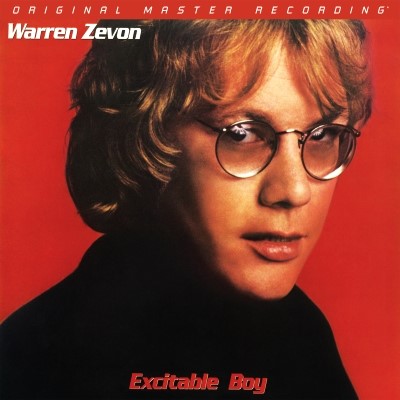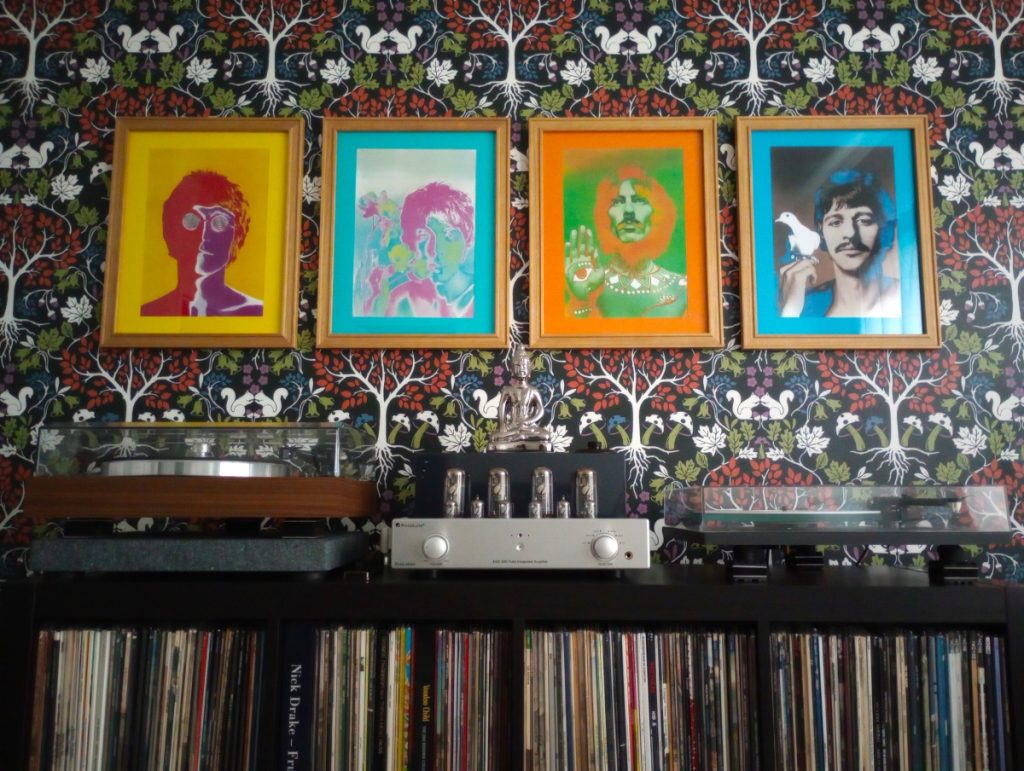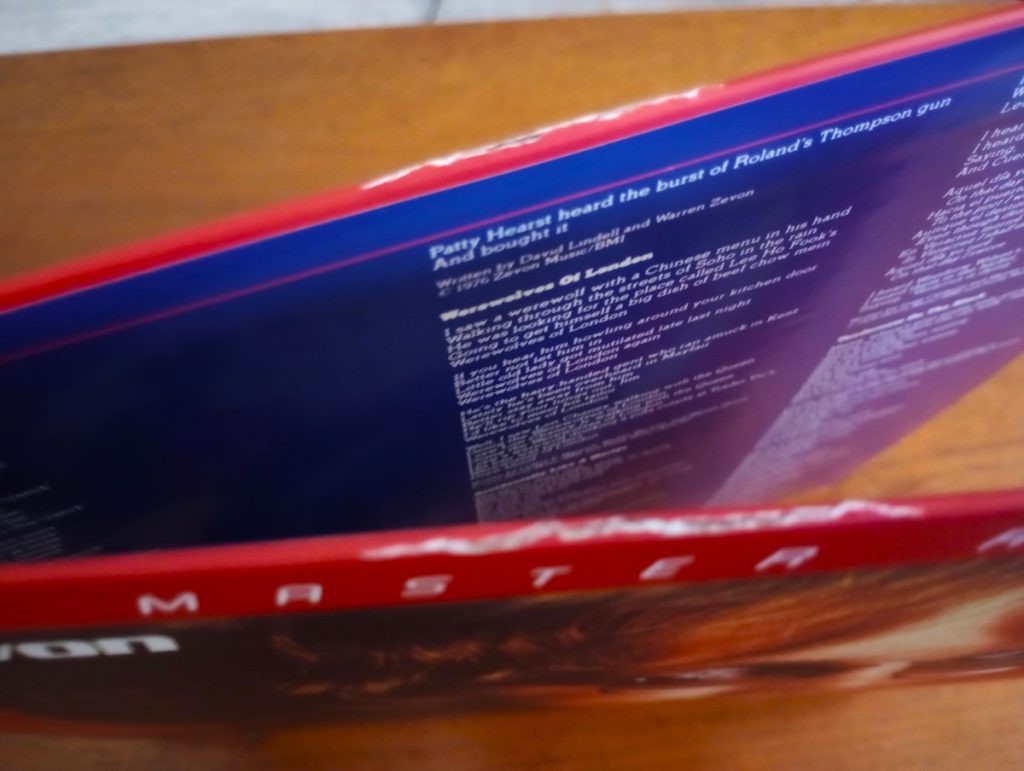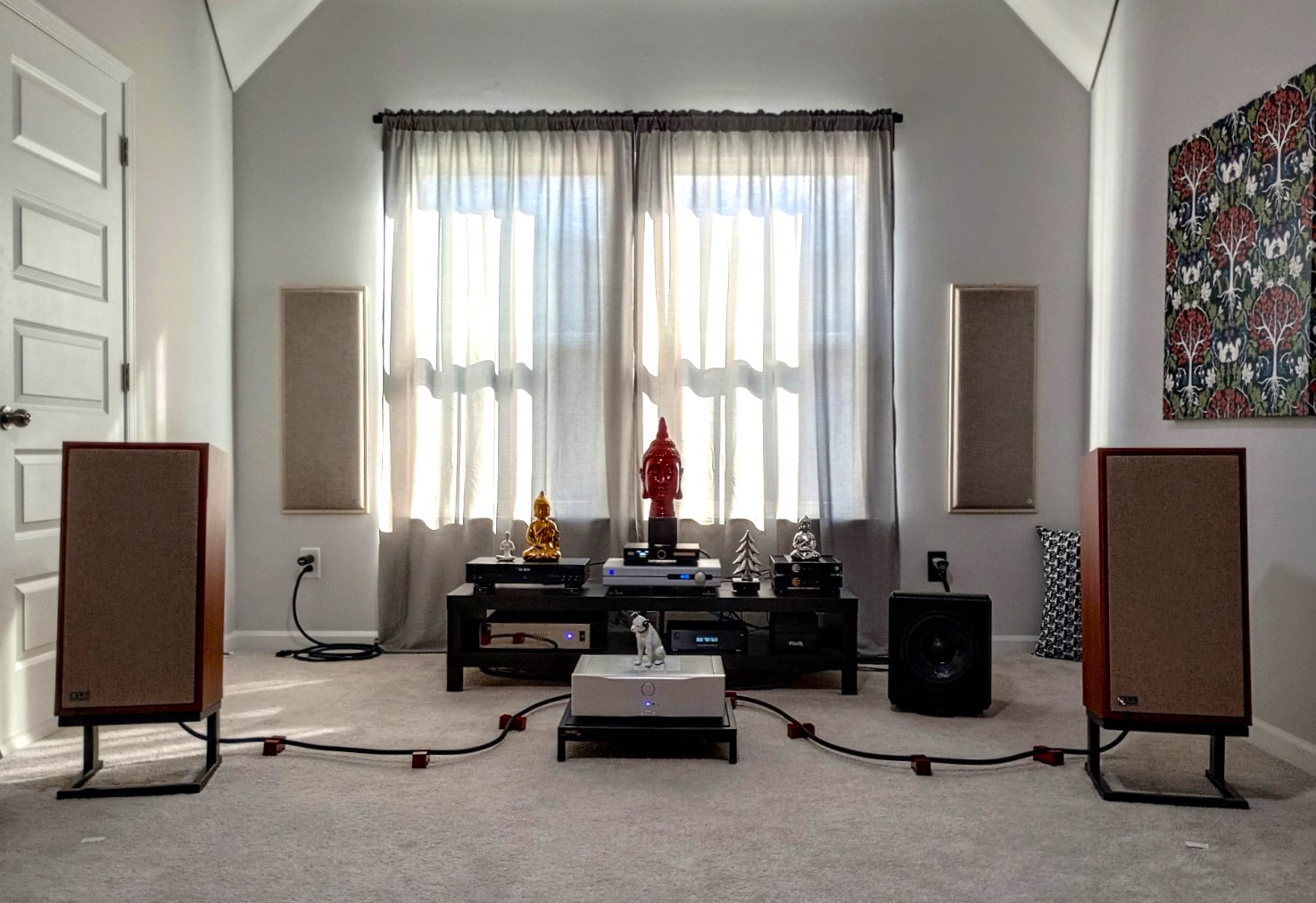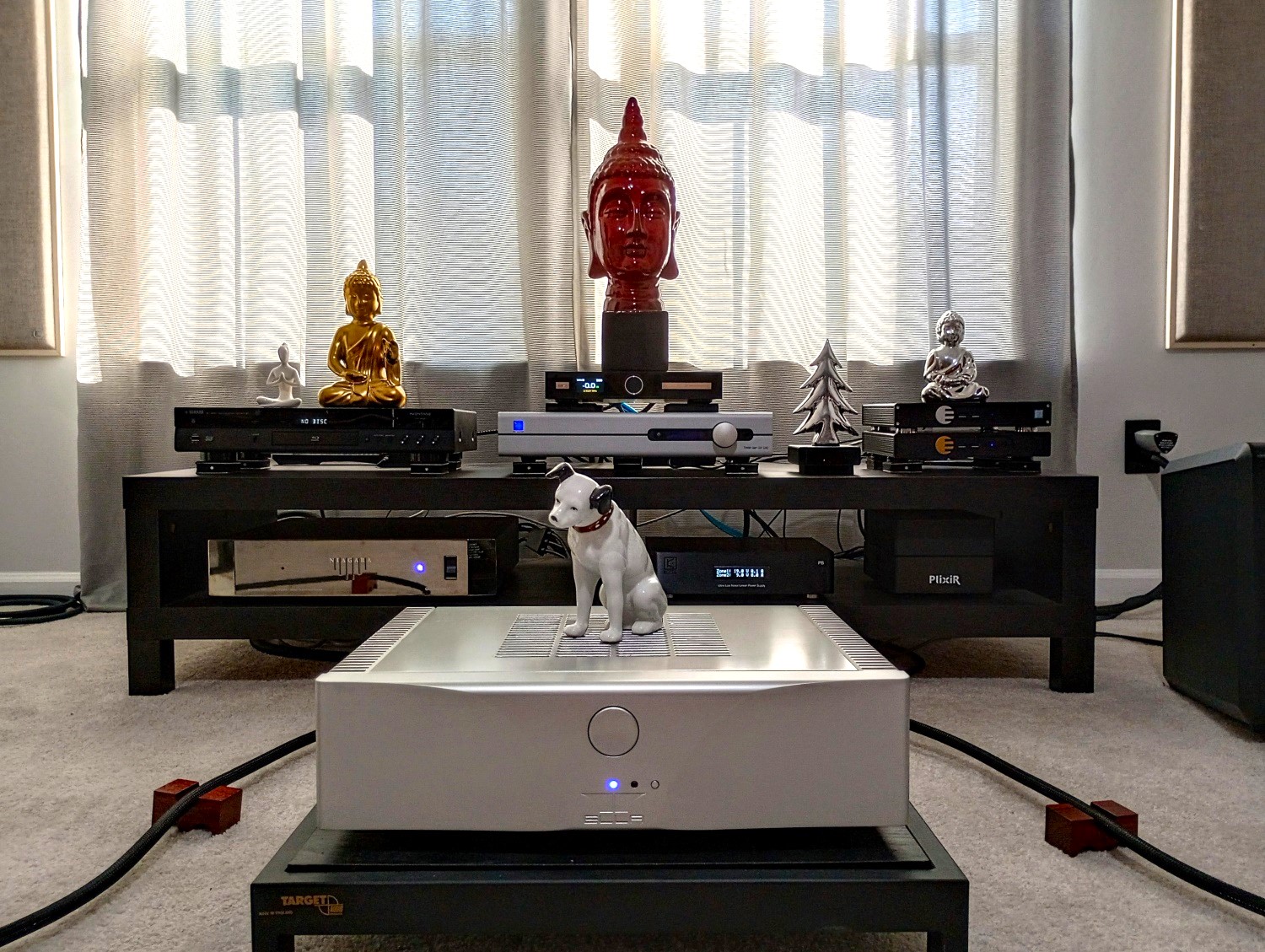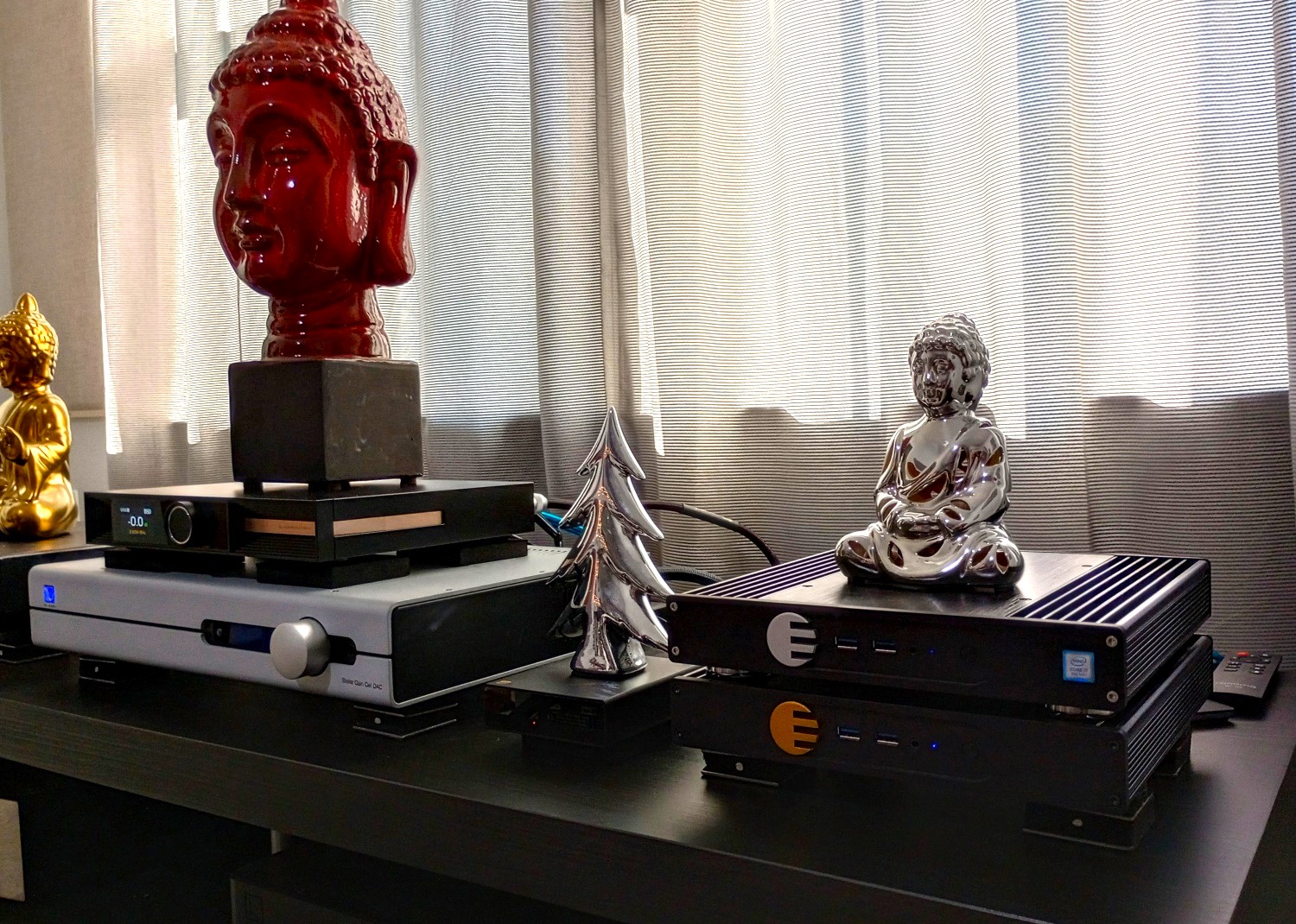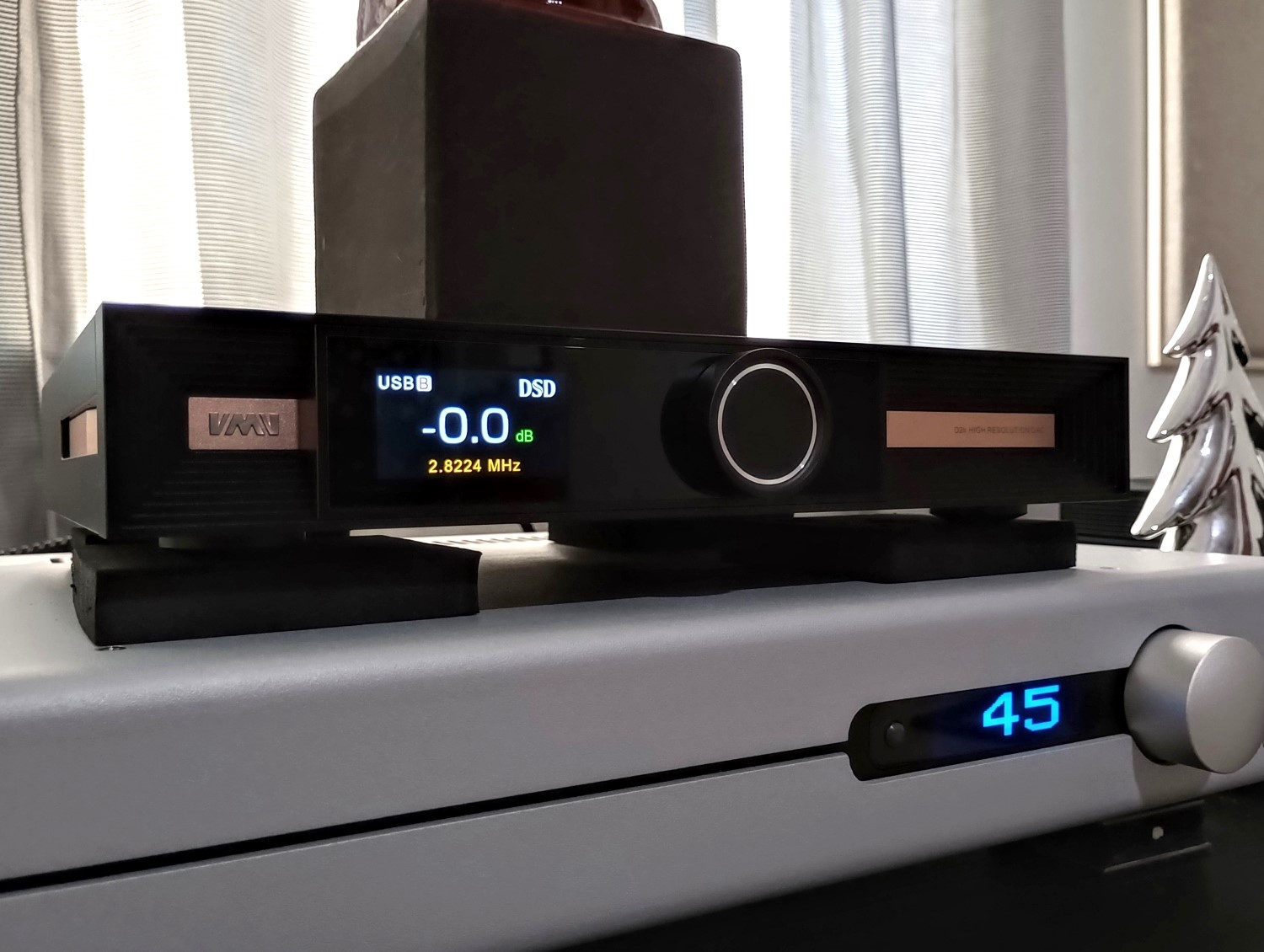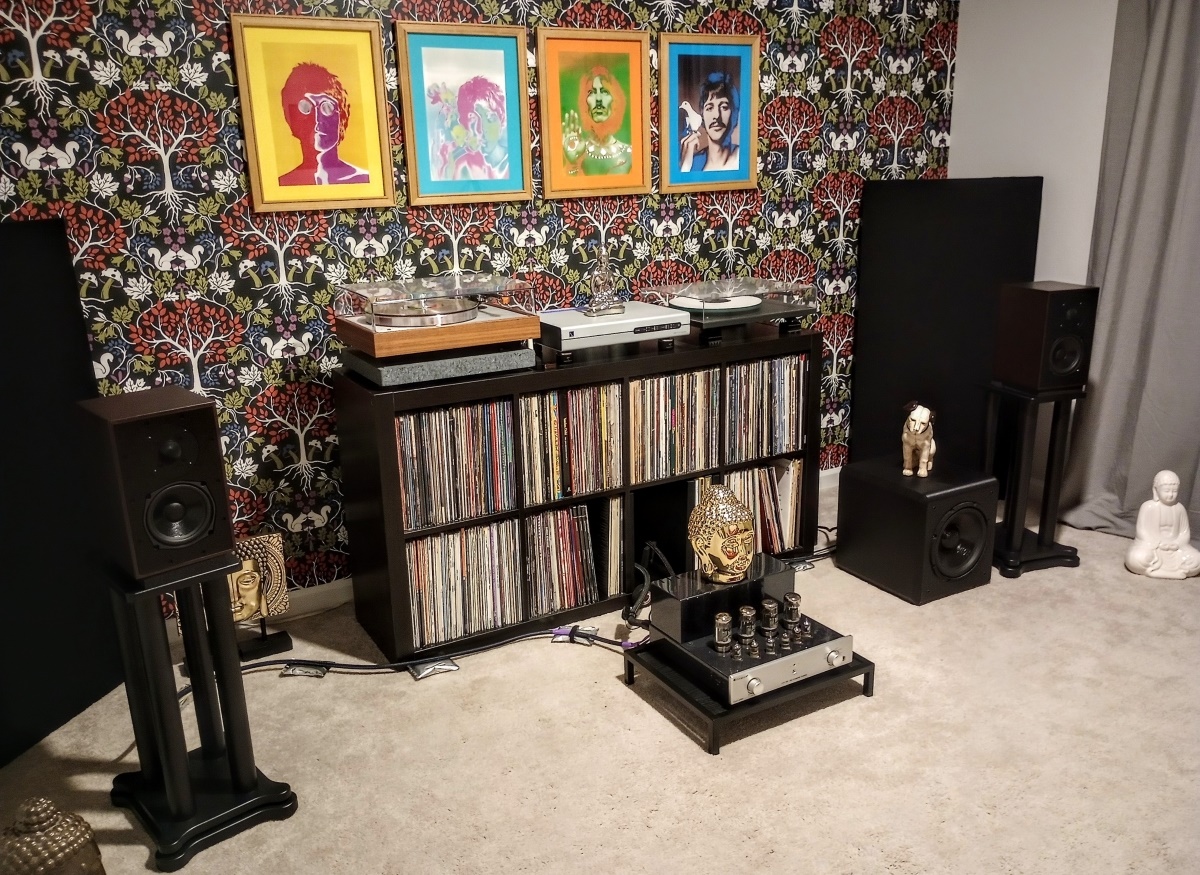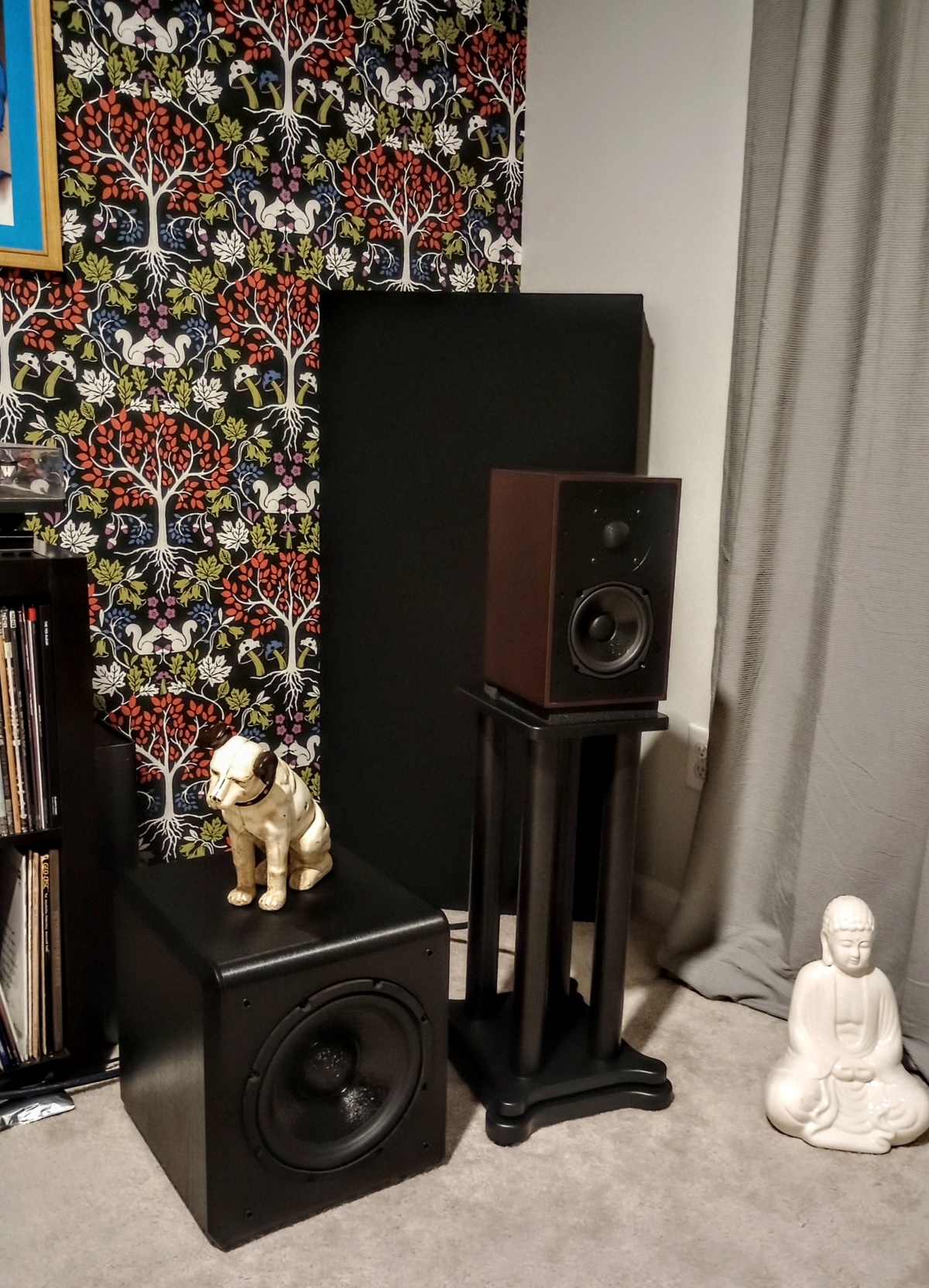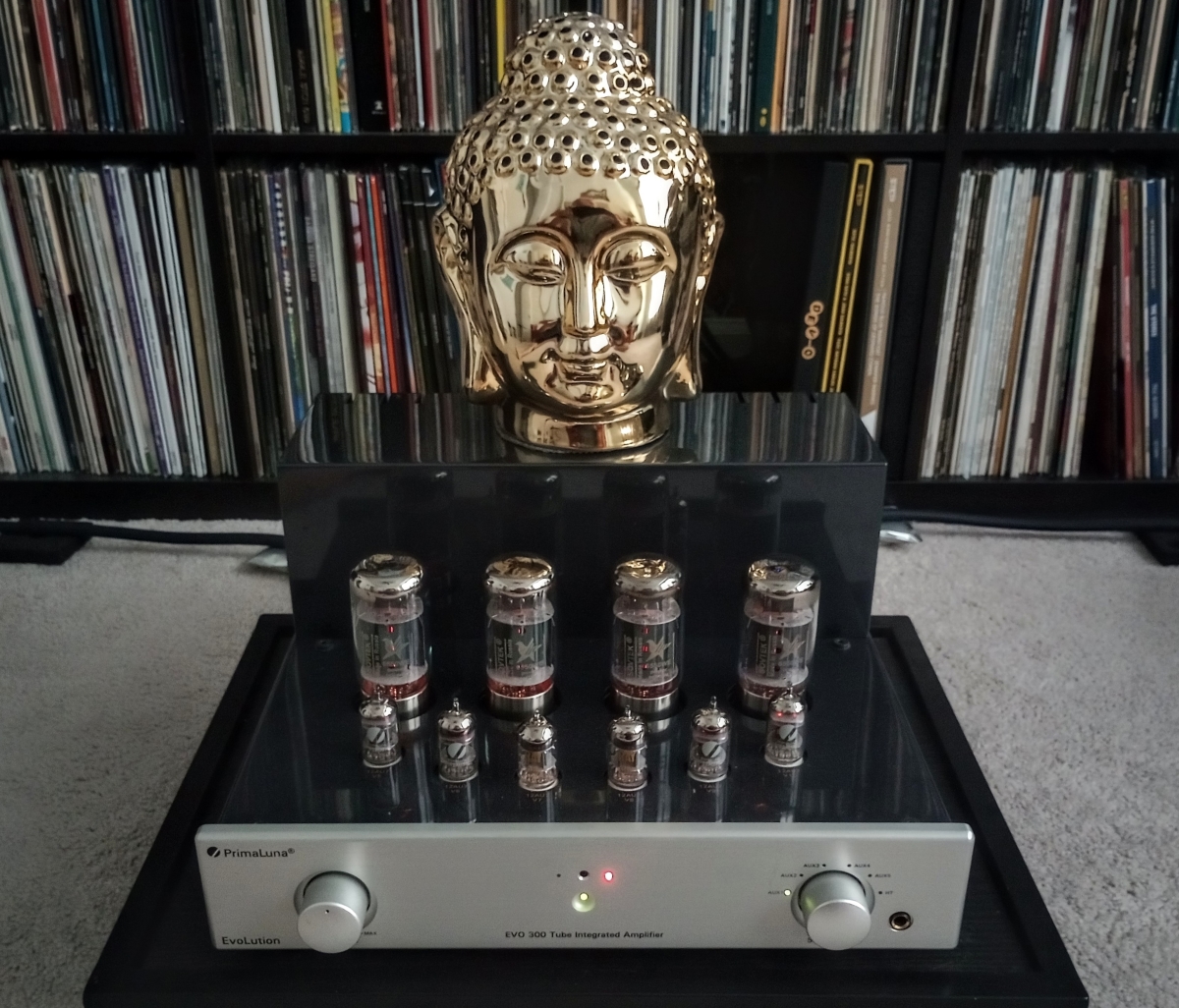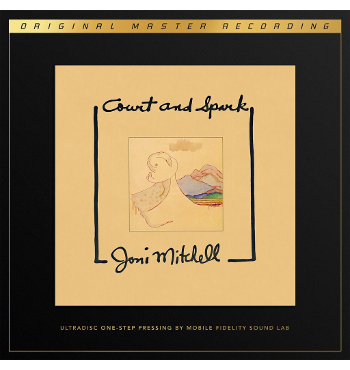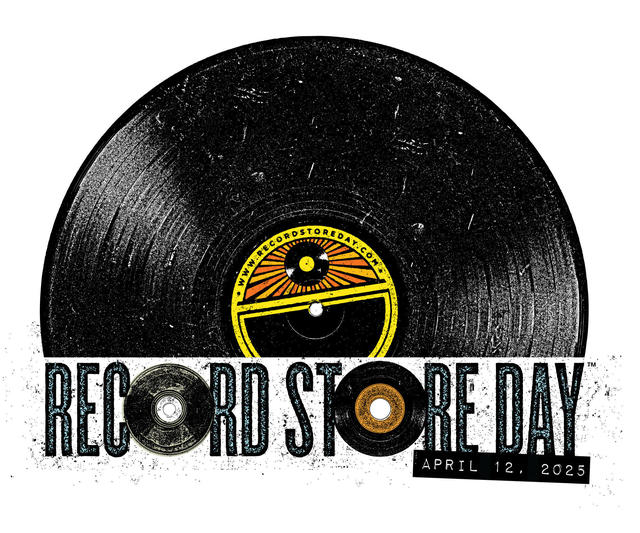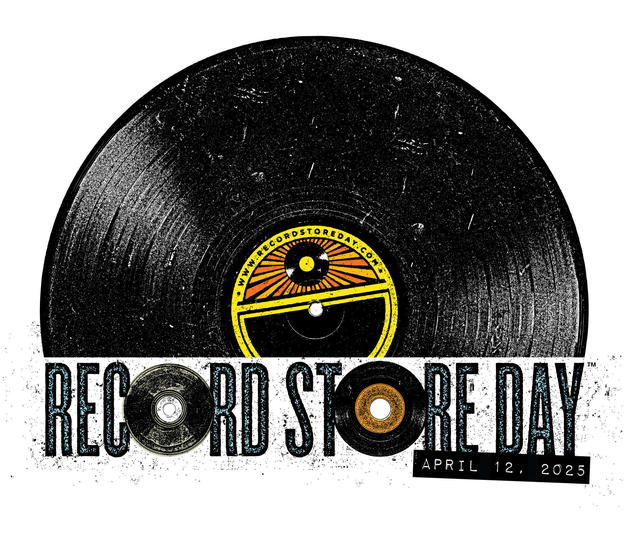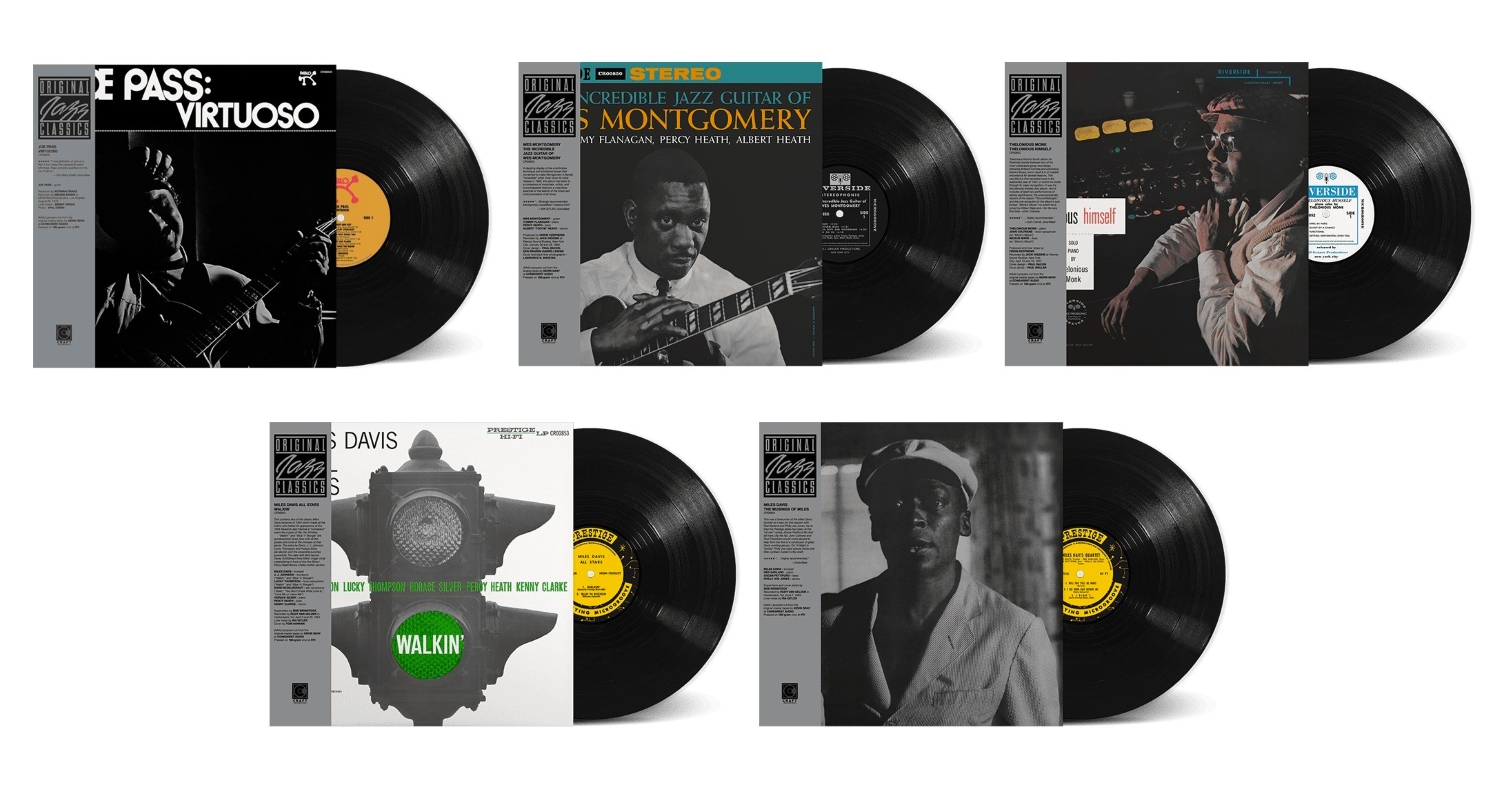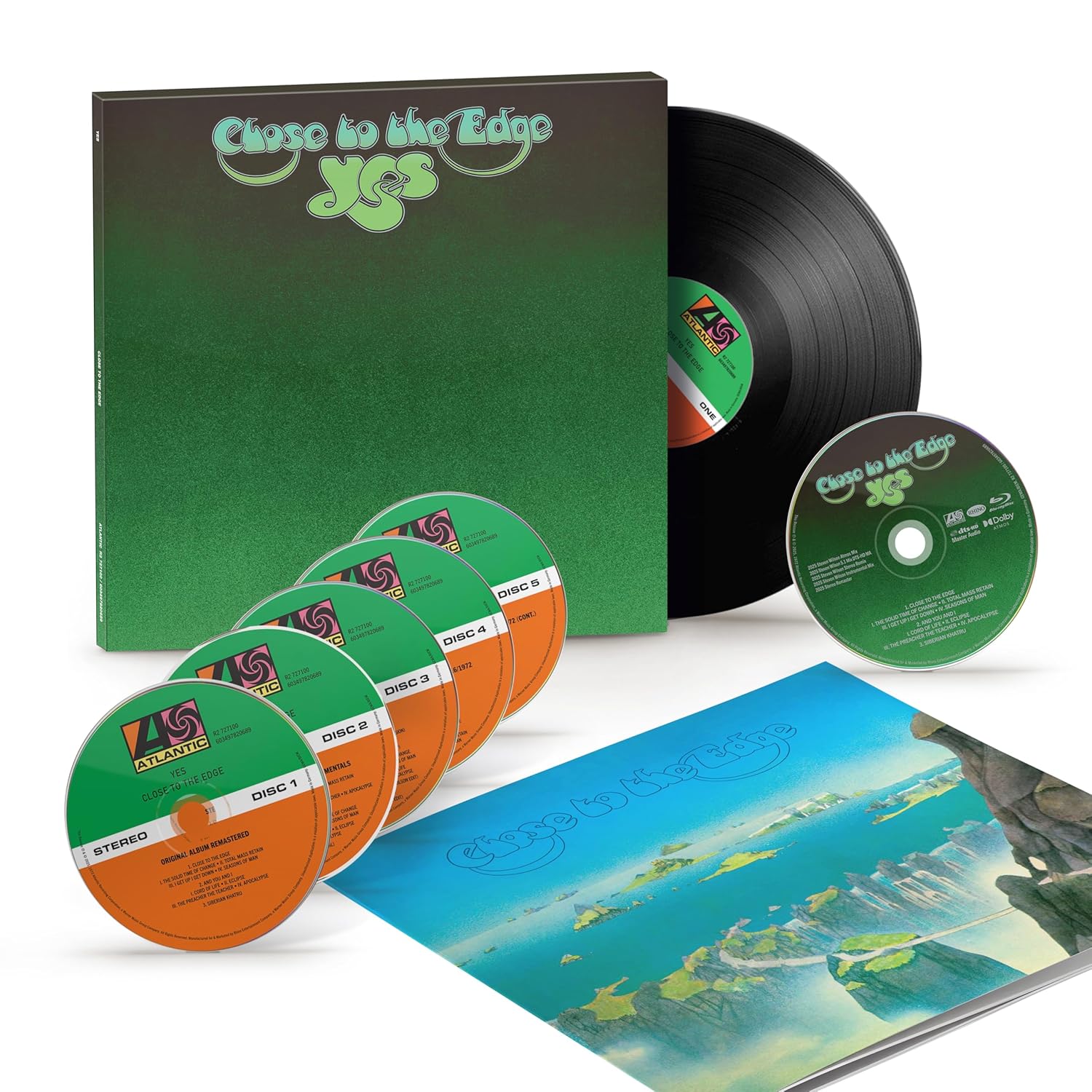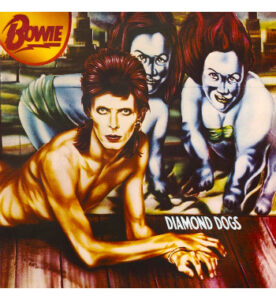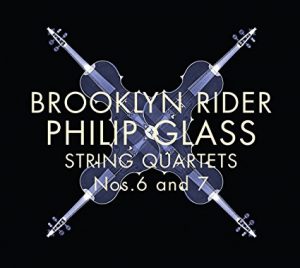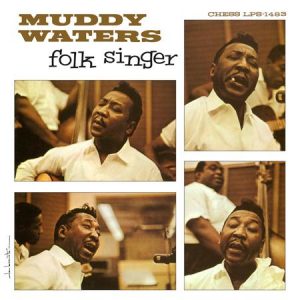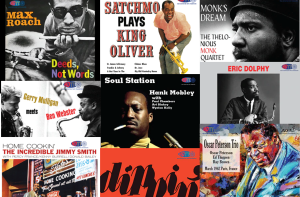Mobile Fidelity set off quite a fire storm a year ago when it suddenly became public knowledge that they'd been using a DSD step in many of their LP reissues—which were touted by the label as being all-analog throughout the remastering chain. MFSL LPs were prized by audiophiles, collectors, and music lovers alike, and were generally regarded as being one of the last bastions of pure analog fidelity. When MoFi eventually acknowledged that the rumors were true, in the audiophile world, it almost seemed as though Armageddon was actually upon us! At the very least, in the aftermath of all the histrionics and hubbub from the analog purists (who were incensed by what they considered to be Mobile Fidelity's deception), it forced many an audiophile to reevaluate their belief system with regard to differences in sound between digital and analog. And whether those differences are real or simply perceived.
I have both high-resolution digital and analog setups in my home, and I'm a big proponent of great-sounding digital, especially DSD—I currently have over 400 DSD albums available on my digital music server. So when I first heard the MoFi story, I wasn't shocked, and didn't actually care. I've covered a number of fairly high-profile LP reissues recently, and with the current poor state of the master tapes of many classic albums, it's almost impossible to remaster many of them without a digital transfer somewhere in the process. Hey, at least MoFi chose to go with DSD versus PCM; DSD is definitely more difficult to work with in the mastering process, but tends to offer results that are more analog-sounding than any other high-resolution digital format that currently exists. I hadn't heard any of the recent MoFi LPs—at least, not in an evaluation context—so I couldn't really comment on whether I thought they were guilty of any egregious behavior, based solely on the sound quality of their LPs. But in an industry where even the slightest hint of "digital" reeks of impropriety to many analog purists, I understand MoFi's reluctance to be forthwith regarding the mastering chain.
When Erik Stein from Scoop Marketing contacted me to gauge my interest in reviewing MoFi's reissue of Excitable Boy, I literally gushed my response! After all, it's Warren Zevon's undisputed masterpiece, and what better choice to explore the current state of Mobile Fidelity's art with LP reissues. Yes, please!
Excitable Boy arrived in a heavy, tip-on, Stoughton-style gatefold jacket that's very faithful in appearance to the original, if perhaps a tad less crisp. The satin-finish coating on the outer surfaces of the jacket was a very nice touch that gave the reissue a very high-end appearance. Having worked in high-end commercial print for many years, it's become apparent to me that getting the decades-old artwork looking pristine for reissues is almost as vexing a problem as getting the sound right! The gatefold jacket holds a pair of 180 gram, 45 rpm LPs that were mastered by Krieg Wunderlich at MFSL's Sebastopol, California facility. Wunderlich used the original, quarter-inch, 15 ips Dolby A analog master tapes that were then transferred to DSD 256 using Mobile Fidelity's GAIN 2 system. The numbered-edition LPs were mastered on an all-analog console and lathe, and pressed on what MFSL describes as "dead-quiet" vinyl. I couldn't tell from the supplied information or from the inscriptions on the LPs where they were pressed or by whom—they arrived nearly two months later than originally scheduled, and MoFi's plans for the pressing plant may have changed or simply gotten delayed. Based on the well-documented backlogs at most pressing plants (thanks, Taylor Swift!), it could have been anywhere. Regardless, I can attest that MoFi's "dead-quiet" vinyl descriptor is spot on—these were among the quietest pressings I've heard recently, with nary a click or pop and an infinitesimal level of groove noise. Both LPs were perfectly flat, with exceptionally glossy surfaces, and were encased in MoFi's classic rice paper inner sleeves.
Warren Zevon, Excitable Boy. (2) 180 Gram, 45 rpm LPs, $59.99 MSRP
Warren Zevon was developing a reputation for interesting, if not particularly critically or commercially successful records. It has also been noted that Linda Ronstadt had a particular predilection for his songs—she covered no fewer than four from his self-titled sophomore release, Warren Zevon. That would all change with his third album, Excitable Boy, released in January, 1978, which was propelled by the success of the album's lead single, "Werewolves of London." "Werewolves" highlighted Zevon's penchant for dark humor and the macabre, and was rewarded with an extended top-forty chart run. Excitable Boy reached platinum sales status for the year, and ended the year in the top ten of the Billboard 200 album charts.
Excitable Boy plays like a greatest hits collection; there isn't a dull moment throughout the album's runtime as it alternates between driving, propulsive tunes and more contemplative numbers. Co-produced by Jackson Browne and Waddy Wachtel, the album features a literal who's who of LA session artists and Asylum Records' catalog artists from the period. Along with his co-production role, Waddy Wachtel played the guitars; Zevon handled all piano, keyboards, and synths; Leland Sklar, Bob Glaub, and Kenny Edwards played the basses; Russel Kunkel, Jeff Porcaro, and Rick Marotta handled the drums; and "Werewolves of London" even featured John McVie and Mick Fleetwood on bass and drums! Backing vocals were provided by Karla Bonoff, Linda Ronstadt (of course!), Jennifer Warnes, Jackson Browne, and John David Souther, among others.
The song selection is Zevon's strongest and most cohesive on any album in his catalog; Excitable Boy is undeniably his masterpiece. Waddy Wachtel's guitar drives the opener, "Johnny Strikes Up The Band," and the macabre spectacle of "Roland The Headless Thompson Gunner" details a ghostly gunner who haunts his surroundings well past his untimely demise. The self-effacing dark humor of "Excitable Boy," with its chorus featuring Linda Ronstadt and Jennifer Warnes, builds the momentum towards the classic "Werewolves of London"—if Warren Zevon had never released another song, this alone should have gotten him in the Rock and Roll Hall of Fame. The Fleetwood Mac rhythm section of McVie and Fleetwood lay the propulsive foundation, and Waddy's guitar solo in the bridge adds a fiery counterpoint to Zevon's absurdist and off-kilter lyrics.
"Accidentally Like A Martyr" is a cryptic song about love and loss, but its somber mood is soon replaced by the disco-like backbeat of "Nighttime in the Switching Yard." Essentially a train song, it features a really nice synth foundation from Zevon and dueling guitar leads from Waddy and Danny Kortchmar. "Veracruz" is another contemplative number that serves a biting social commentary on America's meddling with history. The album closes strongly with a coming of age song, "Tenderness On The Block," and another absolute Zevon classic, "Lawyers, Guns and Money." In which Zevon recounts when he had to call on Warner Bros. president Joe Smith to bail him out of a seriously slippery situation.
MoFi's new 45 rpm double LP version is perhaps the best ever!
Click on my name in the header, and you can see the selection of equipment I used to evaluate this classic LP. For my listening sessions, I used the PrimaLuna EVO 300 tube integrated amplifier, playing over the KLH Model Five loudspeakers. The turntable for this session was the ProJect Classic EVO that's fitted with a Hana SL moving coil cartridge. Listening to Excitable Boy through tubes and classic acoustic-suspension loudspeakers gave my listening sessions a vintage authenticity that took me back to hearing this classic album for the very first time!
I happened to have an original Asylum label pressing of Excitable Boy to use for comparison with the new MoFi reissue. Asylum pressings of that era were generally quite good, with clean surfaces and very little groove noise, and that description typifies the sound of my original. That said, I felt the MoFi 45 rpm, 2-LP reissue set bettered it in every way possible. The remaster featured consistently deeper and more tuneful bass, improved midrange clarity, and the improved groove geometry of the 45 rpm pressings allowed my Hana SL cartridge to navigate those grooves with greater precision. That resulted in an overall sound that was much livelier and more exciting than what I heard from my original—encouraging me to crank the volume during tunes like "Johnny Strikes Up The Band" and "Werewolves of London." The 45 rpm pressings displayed a more pronounced stereo image with improved instrumental textures, and Zevon's vocals had better weight and were more clearly focused in the soundstage.
Both 180 gram LPs had torn through the album jacket upon arrival.
I did have one minor quibble with the MoFi reissue; upon arrival (my review copy direct shipped from Music Direct in Chicago), I noticed that both 180 gram LPs had torn through their respective jacket pockets at the top. That's unfortunate, especially considering that Music Direct's LP shipping packages are among the best in the industry. I'd be really steamed if I were a paying customer—which is a dangerous proposition these days, especially with limited-edition reissues where sometimes less than 5000 copies are pressed. That's an untenable situation in an industry where a pristine product is expected by the customer at this premium price point. Fortunately for me, neither LP appeared to have suffered, and playback was still as close to perfect as possible.
I give Mobile Fidelity highest marks for this release, with only a very slight dink for the packaging issue. For someone who spends as much time listening to DSD files as LPs, it's great to hear what is essentially a morph of the two technologies. There isn't anywhere nearly as wide a gulf between digital and analog as the so-called purists would have you believe. Excitable Boy is also available as a limited, numbered-edition SACD—it would be really great to hear how the 45 rpm LPs compare to the SACDs. This set comes very highly recommended—I wouldn't hesitate to grab one, and they appear to be going fast!
Mobile Fidelity Sound Lab
All images courtesy of MFSL, Scoop Marketing, and the author





